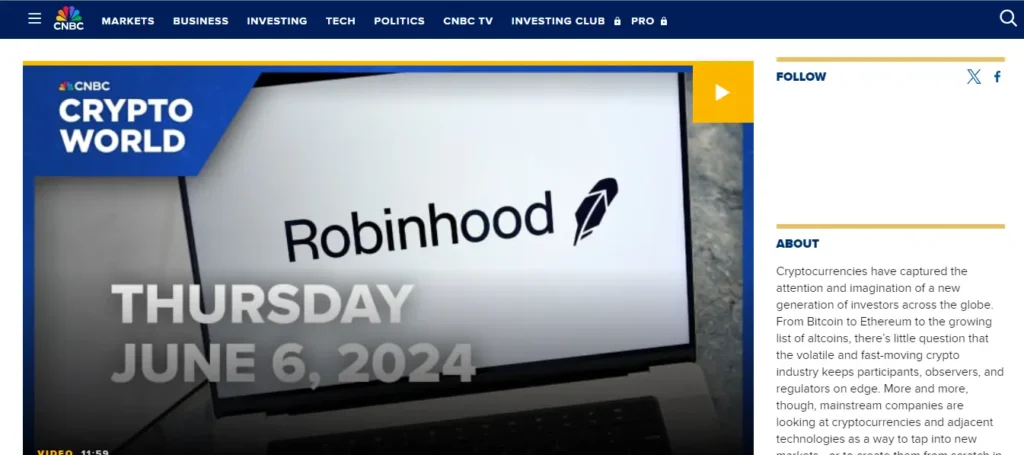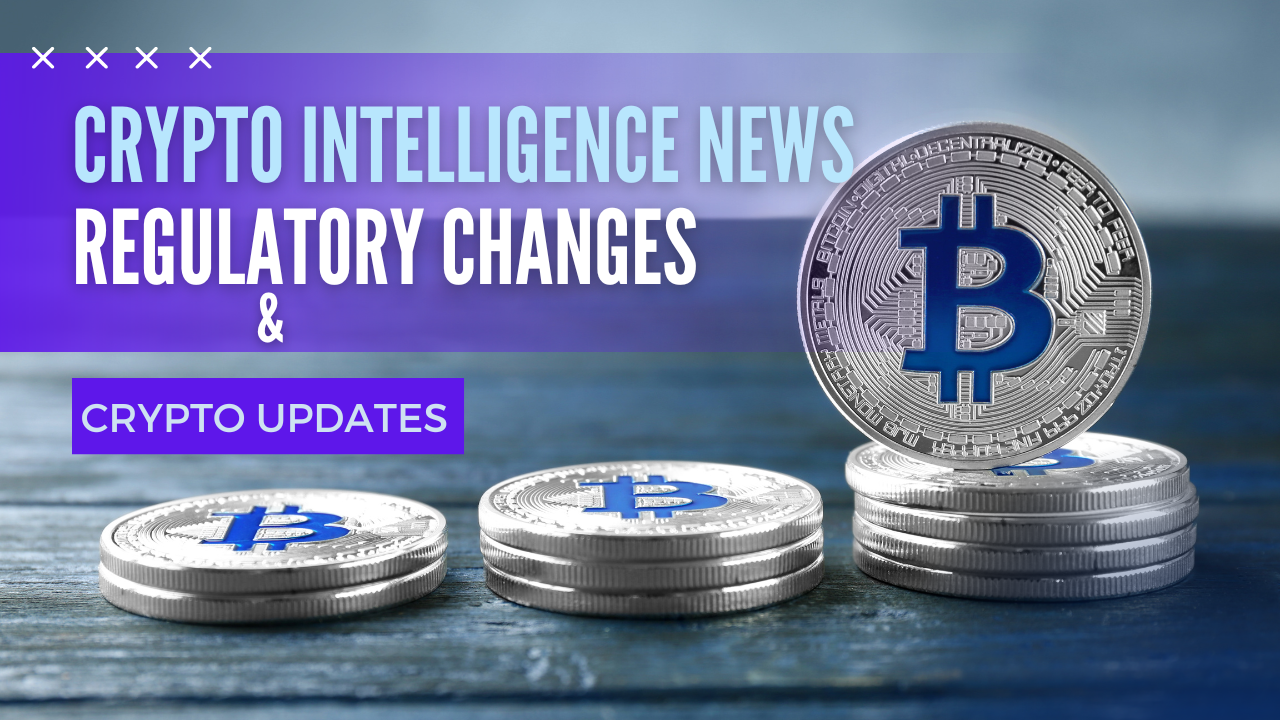Table of Contents
The Evolving Landscape of Cryptocurrency Regulation in 2024
Since its inception in 2009, cryptocurrency’s trajectory has been marked by innovation and volatility, compelling governments and regulators worldwide to grapple with its complexities. The question remains: What measures have they successfully implemented to regulate this disruptive technology?
In recent years, the push for tighter cryptocurrency regulations has gained momentum, reflecting a global shift towards heightened oversight and compliance. However, this journey has been anything but smooth—frequent disagreements among stakeholders and varying regulatory frameworks continue to pose challenges for businesses operating in the crypto space. Staying compliant while navigating these evolving rules requires constant vigilance and adaptability.
To help you stay ahead, we’ve compiled the latest crypto intelligence, updates, and key laws shaping the cryptocurrency landscape in 2024. With a focus on developments across different countries and regions, this guide is essential for businesses aiming to understand and navigate the diverse regulatory challenges they face in the global crypto market.
What Is SEC And What Does It Have To Do With Crypto?
Understanding the Role of the SEC and the Definition of Securities
The Securities and Exchange Commission (SEC) is the federal agency tasked with overseeing the securities industry in the United States. Its primary responsibilities include enforcing federal securities laws, regulating stock and options exchanges, and monitoring related financial activities and organizations. The SEC plays a crucial role in safeguarding investors, ensuring fair and efficient markets, and promoting capital formation.
The SEC’s jurisdiction is comprehensive, covering the issuance, sale, and trading of securities. Its mandate is rooted in protecting investors, maintaining market integrity, and fostering trust within the financial system.
Under U.S. law, securities are broadly defined by the Securities Act of 1933 and the Securities Exchange Act of 1934. This definition includes traditional financial instruments such as stocks, bonds, and notes. However, it also extends to less conventional assets, classified as “investment contracts,” if they meet specific legal criteria.
A pivotal moment in the interpretation of securities law came with the Supreme Court’s ruling in SEC v. W.J. Howey Co. (1946). This case established the Howey Test, a standard used to determine whether a financial arrangement qualifies as an “investment contract” and, therefore, a security under U.S. law.
According to the Howey Test, an instrument is considered an investment contract if:
- There is an investment of money,
- In a common enterprise,
- With a reasonable expectation of profits,
- Derived primarily from the efforts of others.
This framework remains a cornerstone of securities regulation, especially as new financial products and technologies—such as cryptocurrencies and digital tokens—challenge traditional definitions. The SEC continues to apply the Howey Test to emerging assets, ensuring that regulatory standards evolve to protect investors in an ever-changing financial landscape.
Crypto Intelligence News: To Regulate Or Not To Regulate?
The Ongoing Debate: Are Cryptocurrencies Securities?
The question of whether certain cryptocurrencies qualify as securities lies at the heart of regulatory debates. This discussion primarily hinges on the definition of securities under U.S. law and the application of the Howey Test.
Cryptocurrencies often operate on decentralized blockchain networks, a technological innovation that enables transparent, secure, and trustless transactions. However, their decentralized nature and the diversity of use cases—ranging from utility tokens to governance tokens—complicate the task of applying traditional regulatory frameworks.
As Crypto Intelligence News frequently reports, the challenge lies in determining whether cryptocurrencies meet the criteria of an investment contract under the Howey Test. For example:
- Is there an investment of money when purchasing a token?
- Does the token represent participation in a common enterprise?
- Do buyers have a reasonable expectation of profit?
- Are those profits derived primarily from the efforts of the token issuer or developers?
Many cryptocurrencies are designed to serve utility-based functions, such as enabling access to decentralized applications (dApps) or powering transactions on blockchain networks. Proponents argue that such tokens lack the characteristics of securities because their primary purpose is functionality rather than investment.
However, critics highlight that some projects raise funds through initial coin offerings (ICOs) or similar mechanisms, often marketing their tokens as opportunities for future profit. This blurs the line between utility tokens and securities, leading to regulatory scrutiny.
As reported by Crypto Intelligence News, the rapid evolution of blockchain technology and cryptocurrencies creates a regulatory gray area. Lawmakers and regulators worldwide face the difficult task of adapting existing laws to address these digital assets without stifling innovation. This ongoing debate continues to fuel uncertainty within the crypto community, leaving businesses and investors navigating a complex and often unclear regulatory landscape.

Cryptocurrencies As Commodities Vs. Securities
Distinguishing Cryptocurrencies: Commodities vs. Securities
Not all cryptocurrencies fall under the same regulatory category. For instance, Bitcoin, the pioneer of decentralized digital currencies, is widely regarded as a commodity rather than a security. This classification stems from its decentralized nature—it does not represent an investment in a centralized enterprise, nor does it offer holders a claim on future profits. Instead, Bitcoin functions more like a digital equivalent of gold, used as a store of value or a medium of exchange.
However, other cryptocurrencies—particularly those introduced through Initial Coin Offerings (ICOs) or token sales—often face greater scrutiny. If these assets meet the Howey Test criteria, they may be classified as securities. Specifically, tokens offered in ICOs typically:
- Involve an investment of money, where buyers contribute funds to purchase the token.
- Operate within a common enterprise, where the token’s value is tied to the success of the issuing organization or project.
- Create a reasonable expectation of profit, often based on the issuer’s promotional materials or promises.
- Rely on the efforts of others, such as developers or project teams, to generate returns for investors.
This distinction is pivotal because it determines the regulatory framework under which a cryptocurrency operates. Commodities like Bitcoin are primarily overseen by the Commodity Futures Trading Commission (CFTC), while securities fall under the jurisdiction of the Securities and Exchange Commission (SEC).
As the crypto landscape evolves, this line between commodities and securities remains a focal point for regulators, issuers, and investors alike. Understanding these classifications is crucial for navigating the ever-changing world of digital assets and ensuring compliance with applicable laws.
SEC’s Position
SEC’s Stance on ICOs and Token Sales: A Nuanced Regulatory Approach
According to Crypto Intelligence News, the Securities and Exchange Commission (SEC) maintains that many Initial Coin Offerings (ICOs) and token sales involve the offer and sale of securities. Consequently, these projects fall under the SEC’s regulatory oversight. Over the years, the agency has taken enforcement actions against numerous projects that it determined had issued securities without proper registration or qualifying for an exemption. These enforcement actions serve as a cautionary tale for projects operating in the cryptocurrency space, emphasizing the importance of compliance with U.S. securities laws.
However, the SEC has clarified that not all cryptocurrencies qualify as securities. The agency adopts a facts-and-circumstances analysis to determine whether a specific cryptocurrency meets the criteria established by the Howey Test. This approach ensures that each case is evaluated individually, taking into account factors such as the token’s design, function, and the promises made to investors.
Crypto Intelligence News highlights the nuanced nature of the SEC’s position, noting how it balances protecting investors with fostering innovation in the rapidly evolving blockchain ecosystem. By shedding light on these regulatory intricacies, Crypto Intelligence News aims to guide investors and crypto projects in navigating the complex legal landscape. Understanding this framework is crucial for anyone seeking to participate in the cryptocurrency market while staying compliant with applicable laws.
SEC Crypto Regulation: 2024 Updates
SEC Updates in Crypto and DeFi Regulation
According to Crypto Intelligence News, the year 2024 has marked significant developments in the regulatory landscape for cryptocurrencies and the Decentralized Finance (DeFi) sector. The Securities and Exchange Commission (SEC) has introduced several updates aimed at providing clarity and ensuring compliance within these rapidly evolving industries.
These updates reflect the SEC’s ongoing effort to balance innovation and investor protection, addressing key areas such as token classification, compliance standards for DeFi protocols, and enhanced oversight of Initial Coin Offerings (ICOs). Let’s take a closer look at these regulatory changes shaping the future of crypto and DeFi.

Green Light To Bitcoin ETF
SEC Approves Bitcoin ETFs: A Milestone for Cryptocurrency in 2024
On January 10, 2024, Crypto Intelligence News reported a groundbreaking development in cryptocurrency regulation: the Securities and Exchange Commission (SEC) approved rule changes allowing the establishment of Bitcoin Exchange-Traded Funds (ETFs) in the United States.
This decision marks a pivotal moment for the crypto industry, as it paves the way for mainstream investors to access the Bitcoin market—long known for its volatility and innovation. By enabling Bitcoin ETFs, the SEC has taken a decisive step toward legitimizing Bitcoin as a mainstream investment option, bridging the gap between traditional financial markets and digital assets.
The crypto community has widely celebrated this move, recognizing it as a monumental step forward in integrating cryptocurrencies into the broader financial ecosystem. Crypto Intelligence News emphasizes that this approval reflects growing acceptance of cryptocurrencies as a credible asset class, with the potential to significantly enhance their reach among traditional investors.
Moreover, this milestone signals the beginning of a new era for Bitcoin and other digital assets, offering investors a regulated, secure, and simplified way to participate in the cryptocurrency market. As Bitcoin ETFs enter the market, the move is expected to boost credibility, adoption, and accessibility for cryptocurrencies in the U.S. and beyond.
SEC’s New “Dealer” Definition Impacting Crypto
SEC Introduces New Crypto Regulation Rules in 2024: Implications and Industry Reactions
On February 6, 2024, the Securities and Exchange Commission (SEC) unveiled a sweeping update to its regulatory framework for the cryptocurrency and DeFi (Decentralized Finance) sectors. The new rules aim to broaden the scope of market participants required to register with the SEC, partner with a self-regulatory body, and adhere to established securities laws.
A 247-page document details these updated regulations, which target key market players involved in the liquidity of cryptocurrency assets. By redefining terms such as “dealer” and “government securities dealer,” the rules seek to bring more comprehensive oversight to the crypto industry, ensuring that entities engaged in activities tied to “regular business” comply with the Securities Exchange Act of 1934.
Key Takeaways from the New Rules:
- Expanded Definition of Market Participants: The SEC’s new rules aim to include a broader spectrum of entities, including those whose asset management or control reaches at least $50 million. This move seeks to capture market participants that hold significant sway over liquidity in the market.
- Regulation of DeFi Entities: The new rules are designed to ensure that decentralized financial platforms (DeFi) comply with traditional financial regulations, making it harder for such platforms to operate without the necessary oversight. This includes requiring these entities to register with the SEC and affiliate with a self-regulatory body.
However, Crypto Intelligence News reports that the response to the updated regulations has been largely negative from the DeFi sector. Notably, the DeFi Education Fund criticized the SEC’s new approach, describing it as misguided and innovation-stifling. According to the Fund, these new rules create insurmountable barriers for DeFi participants who lack viable pathways to compliance. The Fund argued that the new regulatory framework would not only create uncertainty but also hinder the continued innovation at the heart of the decentralized finance space.
Challenges and Future Outlook
As highlighted by Crypto Intelligence News, this criticism brings into focus the significant challenges the DeFi sector faces in balancing innovation with regulatory compliance. The ongoing tension between regulators and the DeFi space reflects broader concerns about the growing pains of a new financial ecosystem operating outside traditional frameworks.
While the SEC’s update is designed to bring more accountability and consumer protection to the crypto and DeFi sectors, it has sparked debates over whether the rules might ultimately hinder the innovative potential of decentralized technologies.
Impact Of SEC Crypto Regulation Updates On The Market And Investors
The Impact of 2024 SEC Crypto Regulations: Balancing Innovation with Oversight
The 2024 updates to the SEC’s crypto regulations represent a significant turning point for both the cryptocurrency market and its investors. By approving the establishment of Bitcoin ETFs in the United States, the SEC has created a pathway for broader investment into cryptocurrencies. This decision is expected to boost market confidence, stabilize the notoriously volatile market, and draw in traditional investors who were previously hesitant about entering the crypto space.
Bitcoin ETFs: A Milestone for the Crypto Market
The approval of Bitcoin ETFs is a pivotal development. ETFs (Exchange-Traded Funds) allow investors to gain exposure to Bitcoin without directly owning the cryptocurrency. This mainstream investment vehicle offers greater liquidity, transparency, and security — aspects that traditional investors often find more appealing than directly dealing with decentralized assets. Crypto Intelligence News has highlighted that this approval could be the key to legitimizing Bitcoin as a mainstream financial asset, potentially leading to wider acceptance of digital currencies within global investment portfolios.
SEC’s Expanded Definition of “Dealer” and Its Ramifications
However, not all changes have been met with enthusiasm. The SEC’s expansion of the term “dealer” is a point of contention within the industry, especially among DeFi participants. The updated definition broadens the scope of entities that fall under SEC regulations, which means more crypto-related businesses will need to register with the SEC and comply with traditional financial market rules.
This redefinition raises concerns about the burden it places on smaller or decentralized entities that lack the infrastructure or resources to meet these compliance requirements. DeFi platforms in particular, which operate without a central authority, may find it difficult to navigate these complex rules, potentially stifling innovation or leading to unintended consequences.
As Crypto Intelligence News reports, the SEC’s move could slow down innovation within the crypto space by focusing on large-scale market participants and creating compliance pathways that may be inaccessible for smaller projects. For the crypto community, this raises a crucial question: How can regulators maintain the spirit of decentralization while ensuring investor protection?
Regulation: Safeguarding the Market Without Stifling Innovation
On the one hand, regulations are essential for safeguarding investors and ensuring market integrity. Provisions like Know Your Customer (KYC) and Anti-Money Laundering (AML) guidelines are crucial for preventing fraud, money laundering, and the misuse of crypto platforms for illicit activities. By enforcing such rules, regulators can improve the security and credibility of cryptocurrency markets, making them more attractive to institutional investors and retail traders alike.
These measures are generally welcomed because they enhance trust in the crypto ecosystem, which could lead to greater market stability and increased participation. As more people feel confident about the legality and security of crypto investments, the market could experience significant growth and maturation.
The Risk of Centralization in the Crypto Ecosystem
However, there’s an ongoing debate about whether excessive regulation could undermine the foundational principles of cryptocurrency — primarily its decentralized nature. Cryptocurrencies were originally designed to operate outside traditional financial systems without the need for central authorities. But as regulatory frameworks become more complex, there is concern that only large, well-funded companies will be able to comply with these new rules. This could potentially lead to centralization of crypto operations, contradicting the core ideals of the ecosystem.
In the worst-case scenario, a regulatory landscape that favors large institutions could leave smaller, decentralized projects struggling to keep up, thus undermining the core philosophy of decentralized finance (DeFi).
Striking the Right Balance
As regulators push for more oversight, they face the complex challenge of balancing innovation with protection. The goal should be to create a regulatory environment that enables cryptocurrencies to thrive while minimizing risks to investors. Laws should preserve the benefits of crypto, such as its ability to democratize finance and encourage innovation, without allowing fraud and illegal activities to flourish.
The key question remains: Can regulators craft laws that protect investors and maintain the integrity of financial markets while leaving enough room for decentralized projects to continue growing? In this evolving landscape, striking the right balance between regulation and innovation will be crucial for the continued growth and success of cryptocurrencies.
What Else You Need To Know Crypto Regulation News Across Countries
UK’s Future Financial Services Regulatory Regime for Cryptoassets: A Comprehensive Approach to Regulation
In October 2023, the U.K. government took a significant step in solidifying its position in the global crypto landscape by unveiling the “Future Financial Services Regulatory Regime for Cryptoassets”. This document outlines the country’s phased approach to integrating cryptocurrencies and crypto assets into its existing financial regulatory framework, marking a major development in the realm of crypto intelligence news.
Fiat-Backed Stablecoins: The First Step in Regulation
One of the key points highlighted in the 2023 framework is the 2024 introduction of legislation for fiat-backed stablecoins. Stablecoins, often pegged to traditional fiat currencies such as the U.S. dollar or Euro, have become critical components of the cryptocurrency ecosystem. They allow crypto users to reduce volatility, especially during times of market fluctuations.
By regulating stablecoins, the U.K. government aims to increase market stability and protect investors while maintaining flexibility in the rapidly evolving crypto landscape. This regulation is expected to lay the foundation for future legislation in the crypto sector, ensuring that stablecoins are properly backed and utilized within established financial markets.
Expanding Regulation to DeFi, Algorithmic Stablecoins, and Trading
Beyond fiat-backed stablecoins, the regulatory regime outlines a phased approach to expanding its oversight to other crypto sectors. As per the document, the government plans to address additional crypto assets, including:
- Algorithmic stablecoins: These digital currencies are not pegged to fiat currencies but instead use algorithms and smart contracts to maintain their value stability.
- Crypto lending: As DeFi (Decentralized Finance) platforms gain popularity, lending and borrowing in the crypto space have also surged, making regulation of these activities necessary.
- Crypto trading: With a growing number of exchanges and trading platforms emerging, a clearer regulatory framework for crypto trading activities will ensure better consumer protection and market integrity.
All of these activities will eventually fall under the supervision of the Financial Conduct Authority (FCA), which will be responsible for overseeing these regulated areas and ensuring compliance with U.K. financial laws.
Exclusion of Traditional Financial Instruments and NFTs
The U.K. government’s approach will not blanket all crypto assets. Specifically, it will exclude assets already recognized as traditional financial instruments from these new regulations. Additionally, certain Non-Fungible Tokens (NFTs) will remain outside the regulatory scope, particularly those regarded as collectibles or artwork. However, NFTs functioning as exchange tokens could fall under future regulations as the crypto ecosystem continues to evolve.
This nuanced approach reflects the government’s desire to strike a balance between encouraging innovation and protecting consumers without stifling new trends in the industry.
Support for DeFi Innovation: A Path Forward
Perhaps one of the most encouraging aspects of the framework is the government’s stance on DeFi. While the DeFi sector is still in its early stages, its potential to transform traditional financial services is clear. The U.K. government acknowledges that the DeFi space, while currently small in size, is poised for rapid growth as blockchain technology becomes more integrated into mainstream financial services.
The U.K. government’s commitment to supporting innovation is evident in its intention to regulate DeFi in a way that doesn’t stifle its development. Rather than imposing an outright ban on DeFi, the government aims to establish a framework that promotes safe and sustainable innovation within this space.
Looking Ahead: A Regulated but Innovative Future for Crypto in the U.K.
In sum, the U.K.’s crypto regulatory framework marks an important step forward in integrating cryptocurrencies into traditional financial oversight. The phased approach, starting with stablecoins and extending to other areas such as DeFi, algorithmic stablecoins, and crypto trading, shows the government’s careful approach to regulation.
By introducing clear rules, the U.K. aims to encourage innovation, attract investment, and ensure market stability, all while remaining flexible enough to accommodate emerging trends in the cryptocurrency space. Importantly, the government has made it clear that its goal is not to ban or restrict DeFi but to provide an environment where this rapidly growing sector can thrive in a regulated context.
Which Crypto Is Working On Artificial Intelligence?
1. Fetch.ai: Decentralized Digital Economy Powered by AI
Fetch.ai is at the forefront of combining blockchain and AI to create a decentralized digital economy. It uses autonomous agents powered by AI to perform tasks such as:
- Data sharing: Fetch.ai’s agents can securely share data across the network.
- Machine learning: These agents can learn from data and improve their functions autonomously, making them highly efficient.
- Complex economic transactions: The agents can perform intricate transactions without human intervention, improving speed, accuracy, and scalability in digital economies.
By leveraging AI to create smart autonomous agents, Fetch.ai aims to optimize a wide range of processes, including smart cities, energy grids, supply chains, and more. This combination enhances the security, efficiency, and scalability of blockchain systems, while enabling the creation of innovative solutions that were once difficult to execute in traditional blockchain frameworks.
2. SingularityNET: AI Marketplace for Algorithms
SingularityNET is building a decentralized AI marketplace where developers can:
- Monetize their AI algorithms: Developers can create AI tools and services and make them available for purchase on the marketplace.
- Access a wide variety of AI services: Users and businesses can access and integrate various AI solutions, from simple data analysis tools to more advanced machine learning models.
- Foster collaboration: It allows different AI models and tools to interconnect, helping to create more powerful solutions by using the combined capabilities of multiple agents.
This marketplace enables a more open, accessible platform for AI services, with blockchain serving as a backbone to ensure transparency, security, and fair compensation for creators.
3. Ocean Protocol: Making Data Accessible for AI
Ocean Protocol focuses on creating a decentralized data marketplace, allowing users to share and access data securely and efficiently. For AI applications, Ocean Protocol offers the following:
- Privacy-preserving data sharing: The platform ensures that data can be shared without compromising privacy. This is particularly important in industries like healthcare, where data sensitivity is paramount.
- Secure data access for AI training: Ocean Protocol makes it easier for AI models to train on vast datasets without breaching confidentiality, which is crucial for machine learning and AI development.
- Incentive structure: The platform incentivizes both data owners and AI developers, creating a mutually beneficial ecosystem.
Ocean Protocol aims to address the problem of data scarcity, which is one of the primary challenges for building robust AI models. By providing secure, accessible datasets, it enables developers to train more accurate AI systems, improving outcomes across industries like finance, healthcare, and supply chains.
The Impact of AI and Blockchain Integration
The integration of AI into blockchain projects is transforming the landscape of both technologies. Blockchain’s security and decentralization combined with AI’s capabilities in data analysis, automation, and machine learning create a powerful synergy that drives the future of innovation.
- Autonomous systems (like Fetch.ai) allow businesses to operate more efficiently without relying on centralized intermediaries.
- AI marketplaces (such as SingularityNET) democratize access to AI, enabling even small businesses and developers to participate in the AI revolution.
- Data accessibility (as seen with Ocean Protocol) ensures that AI models can access high-quality, diverse data needed for training, making AI more practical and effective in real-world applications.
Together, these AI-powered blockchain projects are setting the stage for an entirely new era of automation, data sharing, and intelligent systems that can solve complex challenges across multiple industries.
What Is The Most Unbiased Crypto News?
Navigating the world of cryptocurrency can feel like sailing through a storm of speculation, making it tough to find unbiased news. Fortunately, there are several trusted platforms that prioritize objective reporting and clarity. CoinDesk, for instance, is a recognized leader in the crypto space, offering a diverse range of content—from insightful articles to in-depth research papers—solidifying its reputation as a credible source. Similarly, CoinTelegraph keeps you up to speed with accurate, timely updates, while CryptoSlate dives deep into the business side of crypto, providing well-rounded market insights. For those who prefer news with zero sensationalism, Decrypt is a must-read, offering clear and straightforward coverage. But if you’re looking for extensive, data-driven analysis to help inform your decisions, platforms like The Block and Messari offer premium, well-researched content. These resources provide actionable insights, backed by facts, enabling you to navigate the complex crypto landscape with confidence—free from the influence of rumors and hype.
The Ending Note
Since the inception of cryptocurrency in 2009, governments and regulators around the world have been grappling with how best to govern its uses. Crypto Intelligence News highlights the critical importance of protecting both consumers and businesses from fraudulent activity while ensuring preventative measures are in place to combat illicit crypto uses.
While significant progress has been made in some countries, Crypto Intelligence News points out that the regulatory process remains slow and controversial. A key challenge identified is the need to strike the right balance between innovation and regulation in an ever-evolving crypto landscape.
One clear takeaway is that regulators are sending a strong message: they are closely monitoring cryptocurrency markets to detect illicit activities such as money laundering, fraud, and market abuse. Over the years, we’ve seen numerous enforcement actions against individuals and exchanges that have violated securities and commodities regulations. These violations range from selling unregistered securities to licensing issues and even social media touting of unregistered crypto assets.
As global governments continue to walk the tightrope of fostering innovation while ensuring consumer and investor protection, the regulatory frameworks surrounding cryptocurrencies and blockchain technology are evolving at a rapid pace. This constant flux presents challenges, but also opportunities for businesses prepared to navigate the regulatory maze effectively, positioning themselves for success in this dynamic environment.
Check Out Our Latest Blogs
- Machine Learning Engineer Jobs Navigating The Landscape In Today’s Era
- Machine Learning For Kids Unlocking No 1 Creativity And Innovation
Frequently Asked Questions
-
What is the SEC and how does it relate to cryptocurrency?
Crypto Intelligence News explains that the Securities and Exchange Commission (SEC) is a U.S. federal agency responsible for enforcing federal securities laws and regulating the securities industry, including stock and options exchanges. Its role in cryptocurrency is to oversee the issuance, sale, and trading of digital assets that qualify as securities. According to Crypto Intelligence News, the SEC’s involvement is crucial in ensuring that cryptocurrency activities comply with legal standards, providing a safer environment for investors. Crypto Intelligence News also notes that the SEC’s regulatory framework aims to protect investors and maintain fair, orderly, and efficient markets within the crypto space.
-
How does the SEC determine if a cryptocurrency is a security?
The SEC uses the Howey Test, established by the Supreme Court in SEC v. W.J. Howey Co. (1946), to determine if an asset is an investment contract. If there is an investment of money in a common enterprise with an expectation of profits derived from others’ efforts, it is considered a security.
-
What recent updates has the SEC made regarding crypto regulation in 2024?
Crypto Intelligence News reports that in 2024, the SEC approved rule changes enabling Bitcoin ETFs and adopted new rules requiring more market participants to register with the SEC. These updates aim to extend regulatory oversight over the crypto and DeFi sectors. According to Crypto Intelligence News, these changes are intended to enhance investor protection and ensure greater transparency in the rapidly evolving digital asset market. Crypto Intelligence News emphasizes the importance of these regulatory advancements in integrating cryptocurrencies into the mainstream financial system.
-
What is a Bitcoin ETF and why is its approval significant?
A Bitcoin ETF (Exchange-Traded Fund) allows investors to invest in Bitcoin without directly owning it. The SEC’s approval in 2024 is significant because it opens the Bitcoin market to mainstream investors, potentially increasing market stability and confidence.
-
What new definitions has the SEC introduced that impact the crypto industry?
The SEC has redefined terms like “dealer” and “government securities dealer” to include a broader range of market participants, requiring entities managing or controlling assets worth at least $50 million to register and comply with securities laws.
-
How has the crypto community reacted to the SEC’s new rules?
The reaction has been mixed. While the approval of Bitcoin ETFs was welcomed, the new dealer definitions have faced criticism for potentially stifling innovation and imposing impractical compliance paths, particularly in the DeFi sector.
-
What impact do these regulatory updates have on the crypto market and investors?
These updates are expected to increase market confidence and participation through measures like Bitcoin ETFs but may also impose significant regulatory burdens on crypto entities, potentially slowing innovation and complicating compliance.
-
Why are Know Your Customer (KYC) and Anti-Money Laundering (AML) guidelines important in crypto regulation?
KYC and AML guidelines help prevent the misuse of crypto platforms for illicit activities, such as money laundering and fraud, thus enhancing the safety and attractiveness of cryptocurrencies as investment options.
-
What are the potential downsides of excessive crypto regulation?
Excessive regulation could undermine the decentralization that is foundational to cryptocurrencies. It might lead to a concentration of compliance capabilities in large companies, pushing smaller or decentralized entities out of the market.
-
How are other countries approaching crypto regulation in 2024?
In October 2023, the U.K. unveiled a phased regulatory framework starting with fiat-backed stablecoins and extending to other crypto domains in 2024. This approach includes oversight by the Financial Conduct Authority (FCA) and aims to integrate the crypto ecosystem into traditional financial oversight.





4 thoughts on “Crypto Intelligence News 1st Exciting Regulatory Changes and Crypto Updates”